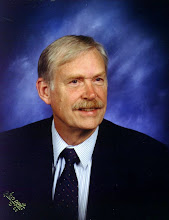Long have I been aware of the author, Wendell Berry. I had not read much of his material, but I knew he was important; when he published, the New York Times and the L.A. Times took notice.
One day, my erudite cousin Martha Carroll and I were exchanging letters on genealogy matters when she mentioned Wendell’s new book, A World Lost. The book was published in 1996, so I suppose she mentioned the book in 1997. She mentioned the book because it had some similarity to one I was writing called The Courage Place. She knew about his new book because she knew Wendell and she lived near him. Also, Martha had been Wendell’s teacher when he was in the second grade.
Having purchased a copy of A World Lost, I read it twice very carefully. Wendell was an artist with words instead of a brush. His prose was like poetry. And I saw that there was some similarity with his subject and mine. In each case a man was murdered for little reason, but in my story he was murdered eighty years before and clearly by a member of the KKK. However, he was murdered near the place where Wendell’s subject was murdered.
With much trepidation I wrote to Wendell and introduced myself, mentioning our common acquaintance. I asked if there were any KKK involvement in the murder of his subject. “After all,” I pointed out, “The motive for the murderer in your book was not clear you did leave room for speculation.”
After a few weeks, Wendell replied in a simple, short handwritten note that there was no KKK involvement as far as he knew, and he expressed some interest in the book that I was working on. I replied in another letter that I was probably the only person on the face of the earth that knew of federal government involvement in the KKK murder of my great-grandfather, James M. Walker, in 1874. (I still have copies of reports from three Secret Service spies who went into Owen and other Counties in Kentucky to find out what was going on.)
I began to read more and more of Wendell’s work, including his poetry. His imagery was fascinating. In the process, I mentioned Wendell to my son Caleb who exclaimed, “Is that guy still alive? He was the founder of the ‘back to the earth’ movement by the hippies in the 1960’s and 1970’s.” Tactfully, I pointed out to my son that I was several years older than Wendell. I continued to read more of Wendell’s work.
It was a year or two later that my wife and I ventured back to Kentucky. We stayed at her brother’s house in Lexington. Her brother, like Wendell, was a professor at the University of Kentucky. He knew of Wendell, but didn’t know him personally. I called my cousin Martha and asked if I might have Wendell’s address so I could visit his farm as we went to see her. She said for us to come on, that she would ask Wendell to drop by. I figured she would give him a detention if he didn’t make to her house.
We were in Martha’s parlor when Wendell walked in. A tall, spare man of about sixty in a sport coat and tie, Wendell was most gracious. I hastily assured Wendell that I was not writing for anyone at the moment and was not conducting an interview. He sat and talked to us for some time and even posed for a picture with my wife and me. We liked him almost instantly.
Wendell seemed shy and thoughtful as I somehow expected him to be. He even remembered my project and congratulated me for being so thorough in my research. It turned out that Wendell already knew part of the story I was researching, since it happened so close to his farm. (Other people had told me that the local lore was that my great-grandfather was an evil person who got what he deserved. If being tired of KKK bullies killing defenseless boys and girls and their parents was evil, I guess he was evil.)
In the depths of my Philistine-ness I asked Wendell if he used a computer in his work. I didn’t know that he was known for shunning modern technological developments. Once again he was kind. He didn’t laugh. He told me that a computer wouldn’t help him write any better (maybe not, but it might help him write more, and that wouldn’t be too bad for the rest of us). Wendell said his wife, Tanya, typed his hand-written pages. They went to his publisher (currently Counterpoint) where they entered Tanya’s typing into their computers. Wendell added that he had control over every step in the publishing process because that was where the errors crept in. Poets are very careful with their words.
Wendell was pinched for time, so he left. What had been ho-hum hour for my cousin was a great moment for me.
When I got back to California and read more of Wendell’s books, I sent him notes with comments and questions, such as the subliminal identity of Jayber Crow. He always answered me with short, courteous handwritten notes. I still have them.
So now I have a new goal. If I live long enough, I want to write as well as Wendell Berry. I am afraid it is going take more years than I have, but I am going to try.
Everyone needs a goal.
Writing
Wendell Berry
KKK
Wednesday, May 04, 2005
Subscribe to:
Post Comments (Atom)


No comments:
Post a Comment